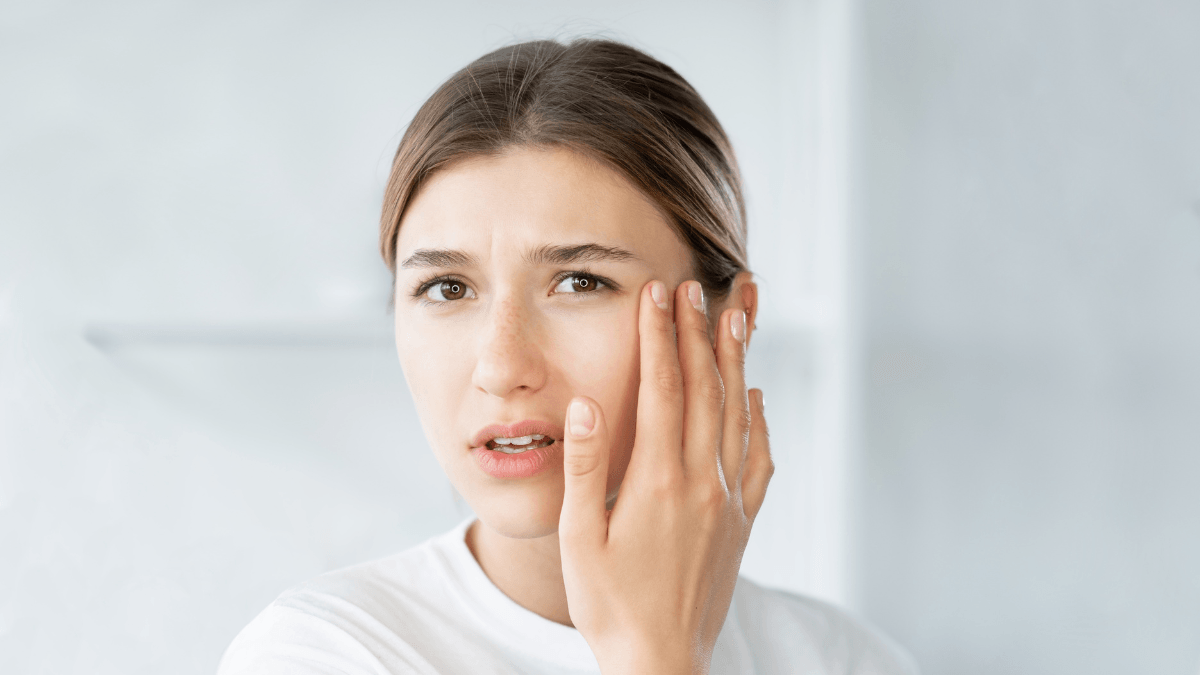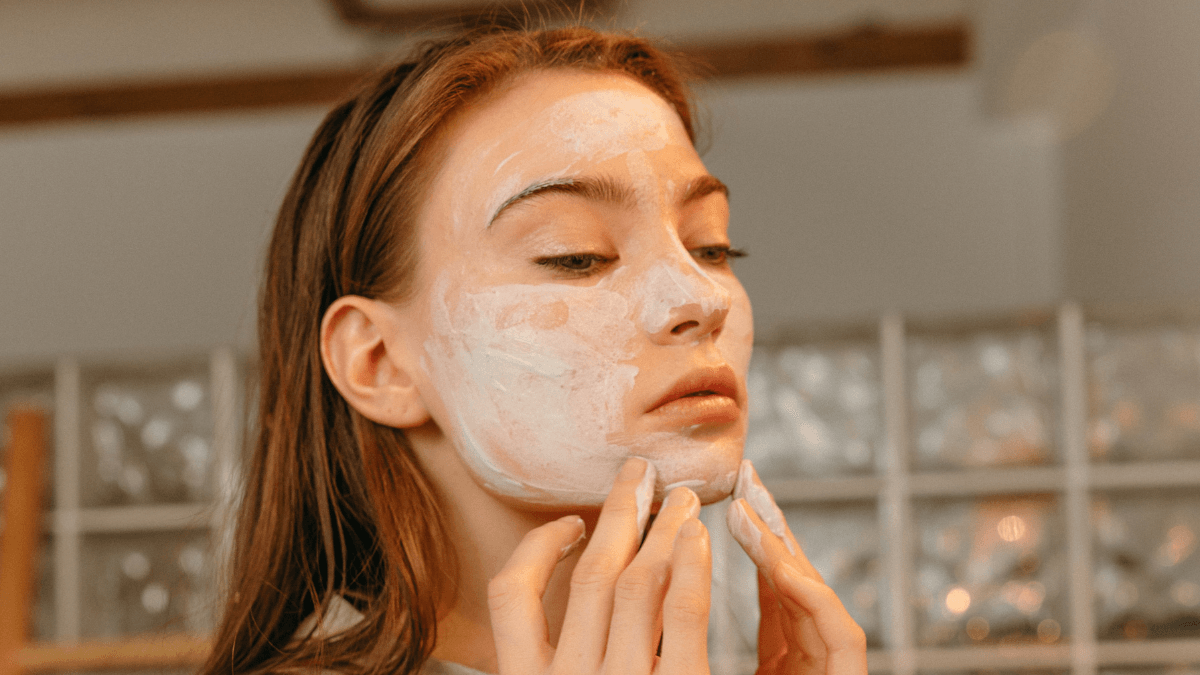Because we constantly get exposed to pollutants, stress, and ever-changing weather conditions, our skin often bears the burden of these challenges, leading to inflammation and redness. Whether you suffer from chronic skin conditions or occasional irritations, finding ways to reduce skin inflammation and redness is an important part of maintaining a healthy complexion. Over the years, these tips have helped me keep my skin in good condition. Remember, we don’t always have perfect skin but it’s important to always take care of it.
Disclaimer: This post contains affiliate links, meaning if you click on a product or service, and decide to purchase it, I may receive a commission at no extra cost to you. All recommended products and services are based on my positive experience with them. For more information, please read my full disclaimer.
Tips on how to reduce skin inflammation and redness.
There are many reasons why your skin may be inflamed and red, but treating it before it gets out of hand is important. Listen to your skin and change your skincare routine as needed. These tips are a great starting point for taking care of your skin and how to reduce skin inflammation and redness.
Gentle cleansing.
It all starts with gentle cleansing. When your skin is inflamed, it needs all the TLC you can give. Harsh cleansers can strip the skin of its natural oils, worsening irritation and leaving it vulnerable to environmental stressors. Using a mild, fragrance-free cleanser ensures a delicate yet effective removal of impurities without compromising the skin’s natural balance. Another important factor is using lukewarm water instead of hot water as how water can further damage your skin.
Every step of your skincare routine should be just as important as the next. Prevention is a lot easier than finding a cure.

RELATED: The 9 Benefits Of Exfoliating Your Skin The Right Way.
Choose the right skincare products.
Choosing the right skincare products is the starting point in reducing skin inflammation and redness. Going for products that have ingredients renowned for their anti-inflammatory properties, such as aloe vera, chamomile, calendula, and green tea extract can help the process along faster. These natural soothers work perfectly to calm irritated skin and enhance complexion. Fragrance-free and hypoallergenic formulations help minimize the risk of further irritation, making them ideal choices for sensitive skin types.
Choosing products labeled “non-comedogenic” ensures that your skincare routine won’t worsen redness by clogging pores.
Don’t forget about hydration.
My son runs around saying “Water is life” and it’s really true. Drinking enough water contributes to skin health by flushing out toxins, promoting cellular regeneration, and preventing dehydration-related redness. Having a water bottle on hand helps you stay hydrated from within. On the outside, choosing a hydrating moisturizer is key to forming a protective barrier that locks in moisture and shields the skin from environmental stressors. Look for products enriched with hydrating ingredients like hyaluronic acid, glycerin, or ceramides to ensure effective skin hydration.

RELATED: The Perfect Winter Skincare Routine To Embrace The Chill.
Load up on anti-inflammatory foods.
Food is fuel, medicine and so much more! Fueling your skin from the inside out is the best way to reduce skin inflammation and redness. Omega-3 fatty acids, found in foods like salmon, walnuts, and flaxseeds, have incredible anti-inflammatory properties that can calm irritated skin. These essential fatty acids contribute to the maintenance of healthy cell membranes, supporting the skin’s natural defenses against inflammation.
Loading up on antioxidant-rich fruits and vegetables, such as berries, spinach, and kale, helps combat free radicals that can worsen redness. By making mindful food choices, you give your skin the nutrients it needs to heal and flourish.
Foods to eat for healthy skin:
- Fatty Fish: Salmon, mackerel, and sardines are rich in omega-3 fatty acids, known for their anti-inflammatory properties.
- Nuts and Seeds: Walnuts, flaxseeds, and chia seeds are excellent sources of omega-3 fatty acids and antioxidants.
- Leafy Greens: Spinach, kale, and other leafy greens contain vitamins, minerals, and antioxidants that support skin health and reduce inflammation.
- Berries: Blueberries, strawberries, and raspberries are packed with antioxidants, helping to combat oxidative stress and inflammation.
- Turmeric: This spice contains curcumin, a powerful anti-inflammatory compound that can benefit the skin.
- Green Tea: Rich in polyphenols, green tea has anti-inflammatory and antioxidant properties that promote skin health.
- Avocado: A good source of healthy fats, vitamins E and C, and antioxidants, avocados contribute to skin hydration and protection.
- Broccoli: High in vitamins C and K, as well as antioxidants, broccoli supports collagen production and helps reduce inflammation.
- Tomatoes: Rich in lycopene, tomatoes have anti-inflammatory and sun-protective properties for the skin.
- Olive Oil: Extra virgin olive oil contains monounsaturated fats and antioxidants, contributing to skin health and reducing inflammation.
Know your triggers.
This might be a lot easier said than done. Everyone is different and triggers can vary from person to person and may include specific skincare products, certain foods, environmental factors, or lifestyle habits. Paying close attention to how your skin reacts to different stimuli, you can pinpoint what’s causing your inflammation and redness and potentially avoid them. This self-awareness helps you to make informed choices about your skincare routine and daily habits, creating an environment that promotes skin health.
Whether it means steering clear of harsh ingredients, adjusting your diet, or minimizing exposure to environmental stressors, knowing your triggers becomes a great step towards having a calmer and more resilient complexion.

RELATED: Blemishes And Pigmentation: What’s Really On Your Skin?
Use ice to your advantage.
If your skin is in need of immediate relief, simply turning to ice or a cold compress can work wonders to reduce skin inflammation and redness. Applying ice wrapped in a thin cloth or using an ice roller to the affected areas can quickly constrict blood vessels, taking away redness and alleviating discomfort. This method helps to soothe irritated skin by reducing blood flow to the area.
The cold also has a numbing effect, that can help with any pain or swelling. Adding ice to your skincare routine can be great for people dealing with occasional flare-ups, offering an immediate solution to calm and rejuvenate your complexion.
What causes skin inflammation and redness?
There can be so many different causes of skin inflammation and redness. I have found that there are a few foods that specifically trigger my skin. Knowing what causes your inflammation can help manage it better.
- Allergens: Exposure to allergens, such as certain skincare ingredients, pollen, or pets, can trigger skin inflammation and redness.
- Harsh skincare products: Using products with harsh chemicals or ingredients that don\’t agree with your skin type can lead to irritation and redness.
- Environmental factors: Harsh weather conditions, pollution, and UV radiation can contribute to skin inflammation and redness.
- Certain foods: Some foods that your body may be sensitive to can lead to skin reactions, contributing to inflammation.
- Stress: Emotional stress can trigger inflammatory responses in the body, often manifesting on the skin as redness or irritation.
- Skin conditions: Chronic skin conditions like rosacea, eczema, or psoriasis can cause persistent inflammation and redness.
- Over-exfoliation: Excessive exfoliation can strip the skin of its protective barrier, leading to increased sensitivity and redness.
- Hormonal changes: Changes in hormones, such as during your period, pregnancy, or menopause, can contribute to skin inflammation.

Conclusion.
Reducing skin inflammation and redness requires a holistic approach. By adding a few of these tips to your daily life, you can help soothe irritated skin and take a step closer to a healthier, more radiant complexion.
Remember that consistency is key, and always consult with a dermatologist if you have persistent skin concerns. Your skin deserves the best care, so treat it with the kindness it deserves for a glowing, inflammation-free future.
Happy Glowing,
Your Wellness Warrior!

